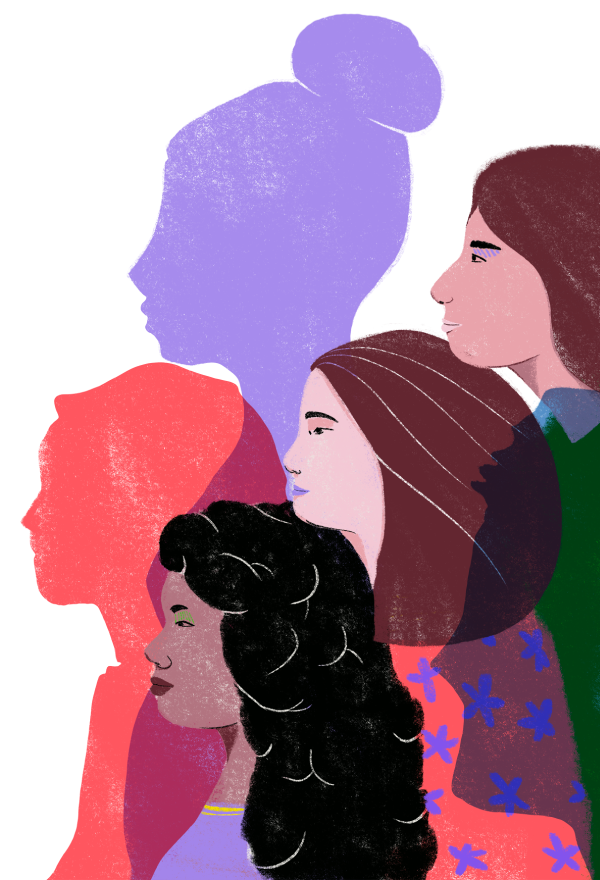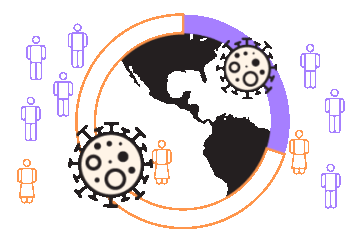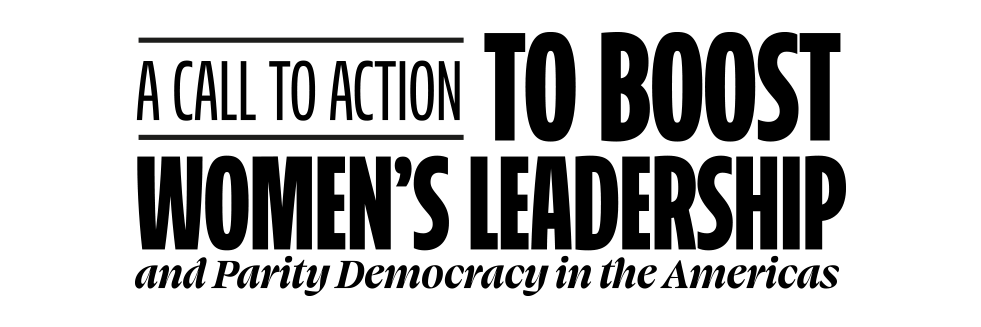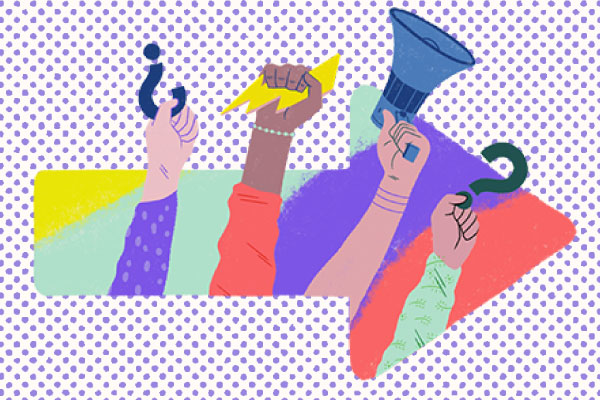Inter-American Convention on the Granting of Civil Rights to Women.

With a regional representation of just over 30% of women in parliaments, the goal assumed in the Sustainable Development Goals to ensure the full and effective participation of women and equal opportunities for leadership in the politic sphere is far from achieved in the Americas.

Target 5.5 of the Sustainable
Development Goal (SDG) 5:
“Ensure women’s full and effective participation and equal opportunities for leadership at all levels of decision-making in political, economic and public life.“
States have approved various agreements and commitments toward the parity democracy and full and effective participation of women in public and political life
HOWEVER,

only nine Latin American countries have a parity rule in their electoral legislation and another nine have quota laws establishing between 20 and 40% of representation by sex in electoral candidacies.
Even though women make up around
50%
of the population, they are underrepresented in decision-making at all levels and spheres of public and political life.

34,6%
of the seats in the lower and upper houses of the Americas are held by women.
(UIP, 2022)

In the last 30 years, only 14 women have been Heads of State and Government in Latin America and the Caribbean.
(Inter-American Task Force on Women’s Leadership, 2022)

15,5%
of municipal mayorships in Latin America are governed by women.
(UN Women, 2021)

24,9%
of seats in local governments, on average, are held by women in Latin America and the Caribbean.
(UN Women, 2021)

Women made up only 30% of the working groups and crisis committees created in the Americas to address both the health emergency and crises in general.
(UN Women and UNDP, 2020)
Accelerating the efforts to achieve women's full and effective participation in positions of power and decision-making is an urgent issue

To reach political parity and the achievement of the Target 5.5 of SDG 5, it is necessary to accelerate the efforts addressed to:
1. Move towards
parity democracy.
2. Increase investment to strengthen
women’s political leadership.
3. Implement urgent measures to
eradicate violence
against women
in political and public life.
4. Move towards
comprehensive care systems.
5. Create and strengthen
citizen participation mechanisms
for women in their diversity.
6. Expand and improve the generation of
gender statistics
with an intersectional approach.
7. Promote
social, cultural,
and fiscal pacts t
hat guarantee progress toward substantive gender equality.
Why participation and leadership of women
in decision-making
are important?

Women have the right to participate equally and free from all forms of discrimination and gender-based violence in all powers and levels of the State.
The full and effective participation of women in decision-making is fundamental so that the public agenda includes their specific needs, perspectives, and contributions.
Parity in decision-making contributes to modifying the structural factors that sustain discrimination and inequality based on gender.
Women's leadership and contributions are essential for an inclusive, equitable, and sustainable response and recovery from crises.
Women’s
leadership
makes the
difference
Decision-making spaces are enriched when the diversity of people and their different identities, experiences, and contributions are recognized and included in participatory dialogues and reflected in the agendas.
Evidence shows that women who hold political office dedicate more resources to social investment, are concerned about social welfare and legal protection, and increase citizens’ trust in government. Furthermore, their participation in decision-making spaces positively impacts productivity, innovation, and response capacity, as noted by the international management of certain Heads of State or governments across the globe during the COVID-19 pandemic. Recent studies show that women in decision-making spaces perform well in their capacity to implement initiatives, resilience, and the pursuit of results. In addition, their presence in these spaces has an intergenerational impact, contributing to eradicating stereotypes and transforming the models to follow in terms of leadership and the exercise of power.
Through activism and the opportunity to influence the construction of public policies, numerous women have contributed to ensuring the visibility of structural inequalities and historically forgotten issues with their relevant contributions to the transformation of social and political agendas in recent decades.
women’s leadership has given to the quota laws and the legislative reforms of the last 14 years by moving them towards parity in political representation systems. In addition, women’s leadership has also been central to the approval and consolidation of comprehensive protection laws on gender-based violence against women, currently existing in 13 Latin American countries, the laws that typify the crime of femicide in 17 countries in Latin America, and the regulation of sex crimes, workplace harassment, specific laws on street harassment and the dissemination of intimate im-ages by electronic media, as well as increased visibility and legislation on violence against women in political life. Women’s leadership has also been key in raising awareness of the unfair social organization of care and the impact of the disproportionate burden of care faced by women, advocating for its recognition and redistribution based on the principle of co-responsibility. Progress towards public policies that guarantee the full exercise of sexual and reproductive rights—including comprehensive sex education, access to contraception and menstrual hygiene products, as well as the voluntary interruption of pregnancy—has been another key point on women’s agendas in the region. This issue has gained increasing relevance in the women’s and feminist movements of several countries in Latin America, widely recognized as the “green tide,” and in certain States, their intervention has been reflected in legislation pertaining to the subject matter.

Women face structural barriers that hinder
the full exercise
of their rights,
including political rights.
The structures and operations of political parties and organizations, as well as different political ambits and public administration, continue to be influenced by resistant organizational cultures and ideological values that hinder women’s access to positions of power and decision-making.
Even when women have demonstrated their capacities for leadership, the persistence of gender stereotypes and biases, as well as discrimination and violence against them, continues to condition and hinder their opportunities and full development.
Different methods have been used to attempt to inhibit the incorporation of women into spaces of power and decision-making, with violence in political life being a reaction to their gradual access to spheres of power and one of the manners in which their political rights are affected.
Despite their growing participation in the labor force, women are still mainly responsible for the care and household tasks, which gives rise to an overload of work, with double and even triple workdays. This is one of the main obstacles to the full enjoyment of rights and opportunities for women under equal conditions, also in relation to public and political life.
Economic autonomy is crucial to empowering women in other spheres, such as politics. However, the gaps in economic inequality persist and have worsened due to the COVID-19 pandemic.
In recent years, there has been a resurgence of conservative and discriminatory practices and discourses that constitute threats and possible setbacks regarding the guarantee of the rights of all people, gender equality, and women’s autonomy.
IN ADDITION,
Intersectionality in political participation
Women are not a homogeneous group; hence, there is a fundamental need to recognize the diversity and plurality present due to ethnic-racial origin, age, sexual orientation, gender identity, disability, migratory status, territoriality (rural/urban), and socioeconomic level, among others.
These conditions and factors can deepen inequalities and discrimination based on gender, which poses greater obstacles to women fully exercising their rights, including their political rights.

What are the actions and public policies that States have committed to promoting women's leadership?
Legislative and electoral measures that guarantee equal representation of women in all areas and levels of political power.
Affirmative policies, to ensure parity, inclusion, and ethnic and racial alternation in all State powers.
Support women’s leadership in social and political organizations, as well as the institutional strengthening and advocacy capacities of civil society organizations, and women’s and feminist movements.
Measures addressed to modify the social and cultural patterns that influence and deepen structural inequalities based on roles, stereotypes, and gender bias.
Regulatory reforms and mechanisms to prevent, punish and deal with violence against women in political life.
Initiatives, regulations, and inclusive electoral policies of a permanent nature that lead organizations and political parties to incorporate perspectives of gender and human rights.
Comprehensive care systems that promote co-responsibility between women and men and between the State, the market, families, and the community.
Statistical information production systems with disaggregated data with an intersectional approach.
Enhancing cooperation among the States and key stakeholders in the promotion of the participation of women in public life.
Accelerating the efforts to achieve women's full and effective participation in positions of power and decision-making is an urgent issue.
The girls, adolescents, and women of today have the right to a present and future in equality in which they can develop their full potential and fully participate in decision-making.




